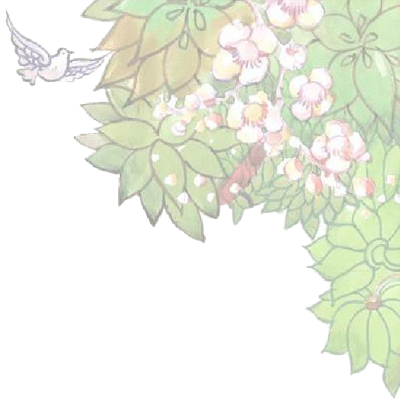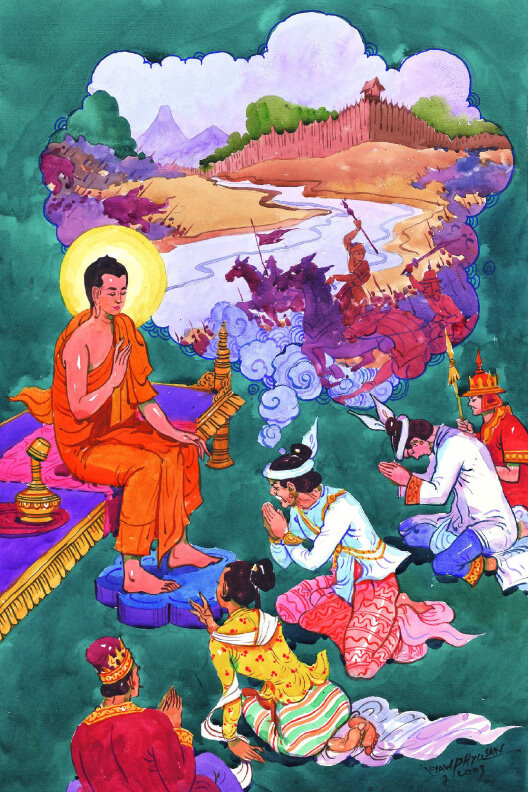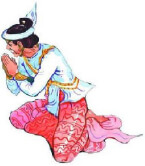34話 コーサラ国パセーナディ王 ・・・・ パトロン国王

第4部 ブッダをめぐる人々
第1章 さまざまな男たち
34話 コーサラ国パセーナディ王 ・・・・ パトロン国王

サーヴァッティ(舎衛城)が首都のコーサラ国は、マガダ国の北方に位置していた。マハー・コーサラ王の統治時代、息子の若きパセーナディ王子はタッカシラー(訳注:ブッダ在世時の十六大国の一つ、ガンダーラ国の学芸都市。現在はパキスタン北東部、インダス川上流域のタキシラ遺跡)へ高等教育を受けるために遊学に出かけた。学友の中にはヴァッジ国の首都ヴェーサーリーのリッチャヴィー王の息子マハーリ・リッチャヴィー王子や、クシナーラー(訳注:マッラ国の西の中心地。ブッダ入滅地で四大聖地の一つ)のマッラ族の王の息子バンドゥラ王子がいた。教育が終わって、かれらはそれぞれ国に帰った。
パセーナディ王子はサーヴァッティに帰ってまもなく、父王の前で習得し上達したさまざまな学問・技芸を披露した。それを見て王子の技量と能力に満足したマハー・コーサラ王は、パセーナディ王子にコーサラ国の王位に就かせ、それ以降、王子はコーサラ国パセーナディ王として知られることになる。
第一王妃はマッリカー妃で、生花の花輪飾り屋の娘だった。王に深く愛された。自分より妃の智慧の方がはるかに優れていると認め、多くの難題解決に当たって、パセーナディ王は、しばしばマッリカー妃に助言を求めた。
パセーナディ王の帰依
ラージャガハで二度目の雨安居を終えてから世尊はサーヴァッティに向かい、アナータピンディカの招きを受けいれて祇園(ジェータヴァナ)精舎に滞在された。パセーナディ王が世尊に会ったのは、そのときが最初だった。その折、王は、こう尋ねた。
「尊師ゴータマよ、あなたは年若く、出家してまだ日が浅いのに、どうして無上正等覚に達した、と宣言されたのですか?」
世尊が答えられた。
「偉大な王よ、若いから、小さいからといって見下げたり、軽蔑すべきではないものが四つあります。その四つとは何か? 王族、蛇、火、比丘です。王族の王子は若いからといって、暴君かもしれず、他者に害をなすかもしれません。小さな蛇は、他者に噛みつき、死なせてしまうかもしれません。パチパチと小さな火花を出している火は、大火事になって家や森を燃やすかもしれません。そして比丘は、まだ若くても、徳において卓越しているかもしれないのです」
パセーナディ王は、世尊が口にされた答えに満足して、喜んだ。世尊への確信が生じ、世尊は智慧にみちている、と信じたのである。そのとき、王は、仏法僧に帰依し、みずからのいのちのつづく限り、生涯にわたって世尊の信者となる決心をした。それ以来、王はブッダと比丘僧団の後援者、パトロン国王となった。
ブッダとパセーナディ王の関係
世尊とパセーナディ王は同い年で、それゆえ会話は親密で、温かいものであった。ある日、パセーナディ王は朝食を食べた後、祇園精舎に出かけた。王は、一かごの四半分の大量のご飯(約三㌔)といっしょに肉カレーを毎日食べていたが、この食習慣のためにたいへん太っていた。それで、世尊の説法をきいている間にとても眠くなり、ほとんどの時間、うとうと居眠りしていた。その居眠りを見て、世尊は、毎日、ほんの少しずつ食べる量を減らすように、そして、もともと食べていた量より、計量秤で十六分の一にまで減らして制限するように、と勧めた。王はいわれたとおりに実行し、少食になるにつれて痩せていったが、たいへん身体が軽快になった、と感じ、はるかに健康になった。
パセーナディ王は世尊から直接、説法を聴ける機会が多くあったので、ビンビサーラ王よりは幸運であった。相応部経典(サンユッタ ニカーヤ)のパーリ有偈篇(サガータヴァッガ)第三部にはコーサラ相応(サンユッタ)として、世尊がパセーナディ王に説かれた二十五経からなる特別編がある。また、長部経典(ディーガ ニカーヤ)、中部経典(マッジマ ニカーヤ)、増支部経典(アングッタラ ニカーヤ)、小部経典(クッダカ ニカーヤ)にも、世尊、あるいは弟子たちが、王に説いた教典がある。
ブッダの女性に対する態度
パセーナディ王が世尊と話していたあるとき、使いの者がやってきて、マッリカー妃が王女をお産みなられました、と王にささやいた。王は、王位を継承する王子の誕生を期待していたので、この知らせをきいて喜べなかった。他の宗教的な指導者とちがって、世尊は王に、こんな助言をされた。
「おお、偉大な王よ、女性のうちのある者らは、まさしく、男性よりすぐれています。智慧をそなえ(メーダーヴィニー)、戒をそなえ(シーラヴァティー)、姑を天とし(サッスデーヴァー)(夫の母を神のように大切にし)、夫に仕える(パティッバター)(夫に貞淑な)女性です。そのような女性は、王となって王国を統治する立派な息子を産むかもしれません」
供犠(動物の生け贄)への異議
アジャータサットゥがあるとき、父のビンビサーラ王を弑逆して王位を簒奪し、マガダ国の新しい王となった。夫のビンビサーラ王の不慮の死に、コーサラデーヴィー妃は深い悲しみに陥った。悲しみの挙げ句、ほどなく妃は亡くなった。パセーナディ王は、姉であるコーサラデーヴィー妃の死を知って、カーシ村の税収を没収した。その税収は、コーサラデーヴィー妃のビンビサーラ王への嫁入り道具としての持参金の一部だった。アジャータサットゥ王はこれを怒り、叔父のパセーナディ王に宣戦布告した。両者はカーシ村へ進軍し、そこで叔父と甥が戦った。最初の三回の戦闘では、若く、強力なアジャータサットゥ王が年長の叔父を打ち負かし、パセーナディ王はサーヴァッティへ退却を余儀なくされた。
世尊がこの知らせをきかれたとき、このようにいわれた。
「勝利は怨みを引き起こし、
敗者は苦悶に生きる。
勝利と敗北を捨てて、
安らぎの心をもつ者は幸福に生きる」(コーサラ相応・第一戦争経)
四回目の戦闘でパセーナディ王は勝利し、甥のアジャータサットゥ王を捕虜にした。パセーナディ王は甥の象、馬、戦車、歩兵すべてを没収したが、甥は生かしておいた。パセーナディ王はアジャータサットゥが、二度と攻撃しない、と誓約するまで解放しなかった。
これを知って世尊は、国同士の戦争に関する真実を反映した二つの偈を口にされた。これらの偈は、現代でもいまだに通用するものである。
「それが自分に役立つ限り、ひとは必ず略奪する。
しかし、他の者らが略奪するとき、
奪ったかれは奪い返される。
悪の果が熟さぬ限り、
愚か者は幸運だと思う。
しかし、悪が熟するとき、愚か者は不運に見舞われる」
「殺せば殺す者を得て、
勝てば勝つ者を得る。
また、罵れば罵る者を得る。
また、悩ませば悩ます者を得る。
かくて、業が転じることによって、
奪ったかれは奪い返される」(コーサラ相応・第二戦争経)
最初のはかりごと-王子出生の秘密
パセーナディ王が世尊の在家信者となった後、王は僧団と親密になりたいと望んだ。世尊がサーキャ族(釈迦族)であることを知って王は釈迦国へ使いを送り、王族の娘を輿入れさせるように、と求めた。釈迦族の人びとは、王族の娘を釈迦族以外に輿入れさせることもできず、釈迦国がコーサラ国の属国であるため断ることもできなかった。(訳注:釈迦族には独特の通婚ルールがあり、父の姉妹または母の兄弟の子同士が結婚する『交差いとこ婚』が行われていた。このため、血の穢れとなる異民族との通婚を忌避していた)そのとき、釈迦族の人びとは、釈迦族のマハーナーマ王子と奴隷女のナーガムンダーの娘、ヴァーサバカッティヤーを輿入れさせるというはかりごとをたくらんだ。そうとは知らずパセーナディ王はたいへん喜び、ただちに妃として迎えた。こどもができ、パセーナディ王は息子ヴィドゥーダバ(訳注:後のヴィドゥーダバ将軍。瑠璃王子)を得た。
あるとき、ヴィドゥーダバ王子がカピラヴァットゥを訪れると、釈迦族の王子の誰もが自分に敬意を払わなかった。そして、自分の祖母が奴隷女である、と出生の秘密を知ってしまったのである。王子は非常に驚き、自分が王になった日には釈迦族のすべてを殺してやる、と復讐を誓った。この消息を知ったパセーナディ王は激怒し、王族の礼節をかなぐり捨て、王子とその母の妃を奴隷の身分に落とした。しかしながら世尊が王に助言され「カッタハーリカ本生」(ジャータカ第7話)を語られた後、パセーナディ王は王族の礼節を取り戻して、母子の身分を元通りにしたのであった。
二番目のはかりごと-密告で誅殺
タッカシラーへの遊学から帰郷して、バンドゥラ王子は学芸の上達ぶりを、マッラ族の王侯貴族の前で見せたい、と望んだ。しかし親族たちによって欺かれ、かくして公開披露には失敗した。その裏切りを発見して、王子は、全員殺す、自分を王にせよ、と脅した。しかし、両親は説得して思いとどまらせた。親族たちに失望したバンドゥラ王子は、友であるパセーナディ王のもとで生きようとして、サーヴァッティに向かった。王は歓迎して受けいれ、王子を軍の総司令官(将軍(セーナーパティ))に任命した。
バンドゥラ王子はクシナーラーのマッラ王の娘マッリカーと結婚した。二人は十六組の双子の男の子を設けた。その三十二人の息子たちは、父に似てさまざまな学芸に巧みで、それぞれ従者千人を擁していた。
ある日、バンドゥラは、裁判で誤審が起きた、と聞いた。その裁判の審理を改めて行い、下した判決はたいへんな喝采を浴びた。これを聞き及んだパセーナディ王は喜び、バンドゥラを裁判官に任命した。しかしながら、前の裁判官たちが怒り出し、バンドゥラに嫉妬した。かれらは、はかりごとをたくらみ、パセーナディ王に、バンドゥラが王位簒奪という大それた望みをもっている、と欺いた。王はかれらを信じて、バンドゥラが反逆を企てるのではないか、と心配した。かくして国境地帯で暴動が起きたとき、王はバンドゥラと三十二人の息子たちを反乱の鎮圧に派遣した。バンドゥラとともに王が選抜した将軍たちを付き添わせ、その将軍たちに、帰還時にバンドゥラと息子たち全員を殺害するように、と命じたのである。
マッリカーは、主要弟子二人にみちびかれた五百人の比丘に自宅で布施食をふるまっていたとき、夫と息子たちの虐殺の悲報を受け取った。彼女はその手紙を読み、ふところに入れて、まるで何事もなかったかのように穏やかに自分の務めをはたした。ちょうどそのとき、女中が食卓にギー(訳注:乳製の液状バター)を入れた碗を持ってきていて、誤って手を滑らせ、割ってしまった。これを見て、サーリプッタ尊者はマッリカーに、割れものの碗が割れたことで心を乱さないように、と諭した。その後すぐ、彼女はふところから手紙を取り出し、夫と息子たちの死という残酷な知らせを受け取ったばかりなのです、と言った。そうであっても、彼女は自分の心が悲報に乱されないように、とみずからを許さなかったのである。さらに加えて、三十二人の嫁たちに、悲しみ、嘆き、憂いでふさぎこまないように、王に対して怒りを根にもち、怨みを抱かぬように、といいきかせたのであった。
三番目のはかりごと-釈迦族の滅亡
パセーナディ王は、送りこんでいた密偵から、マッリカーのみせた態度をきいた。王は、軍総司令官のバンドゥラ将軍がじつは無実だったのだ、と理解し、自責の念に駆られた。マッリカー宅に行って、マッリカー本人と三十二人の嫁たちに謝罪した。彼女たちに王は贈り物をしただけでなく、バンドゥラの甥ディーガカーラーヤナを軍総司令官に任命した。
パセーナディ王はできる限りの償いをしたのだが、それでも自責の思いは消えなかった。それ以来、気力を失い、王としての贅沢には喜びを見出せなくなった。ある日、世尊がメーダールパに滞在されていたとき、いまや八十歳になったパセーナディ王は世尊のもとを訪れた。世尊の部屋に入る前に、王は国王の徽章(身分を表すしるし)を軍総司令官のディーガカーラーヤナに預けて、ひとりで入った。
その後すぐ、部屋のなかで世尊が王に説法されている間に、叔父のバンドゥラが王に誅殺されたことを決して許していなかったディーガカーラーヤナは、馬一頭と侍女一人を残し、国王の徽章をサーヴァッティに持ち帰った。そして、コーサラ国の新王としてヴィドゥーダバ王子に戴冠(たいかん)して即位させたのである。
「法尊重経(ダンマチェーティヤ スッタ)」(中部89)を世尊から聴いて、パセーナディ王は大いに喜んだ。しかしながら王は僧院から出たとき、馬一頭と侍女一人を除き、従者全員がいなくなっているのを見て、衝撃を受けた。何が起きたのか侍女から知らされ、アジャータサットゥ王を頼ってマガダ国のラージャガハへ急いだ。
ラージャガハに着いたとき、夜もふけて街の城門はすでに閉まっていた。老いた王は長旅で疲れきっていたが、翌朝、甥のアジャータサットゥ王に会うつもりにして、城外のお堂で夜を過ごすほかなかった。
その夜、ひどい消化不良の胃痛に苦しみ、とても衰弱した。侍女のみに看取られて、パセーナディ王は明け方に亡くなった。世尊入滅に先立って死んだのである。
いまやコーサラ国王となったヴィドゥーダバ王子はみずから復讐を誓ったことを覚えていた。大軍を率いて戦争をしかけ、釈迦族を滅ぼそうとした。しかし、その途中で、王子は釈迦族を穏健に保護される世尊に出会った。これを知って、王子は軍を引き上げさせた。王となってから三度、釈迦族撃滅の遠征軍を派遣したが、三度とも世尊に出会い、軍を撤退させたのである。それでもやはりヴィドゥーダバ王が四度目の進軍をしたとき、世尊はもはや保護されなかった。世尊は、釈迦族の過去の悪業をご覧になって、それがいまや果を結ぶであろう、と知られたのである。
(訳注:アルボムッレ・スマナサーラ著、サンガ刊「日本人が知らないブッダの話」によれば、かつて釈迦族が河中に毒を投じて漁を行い、下流の生命まで長く苦しみ続ける悪業をなした果報で釈迦族は滅亡した、というのが註釈書による説明で、個人ではなく「集団の業」について語られた珍しいくだり、とみられるが、パーリ経典にこのような記載はない、という)
釈迦族は殺生に反対していたのだが、コーサラ国軍の侵入に直面せざるをえなかった。釈迦族の弓の技量を駆使して、ヴィドゥーダバ王の軍に矢を射こんだ。それも、誰も負傷させることなく、ただ威嚇して追い払うために、だった。しかしながらヴィドゥーダバ王は、釈迦族が殺そうとして矢を射ている、と考えて、自分の祖父であるマハーナーマと、その一族を除いて、釈迦族全員を殺せ、と命じた。
サーヴァッティへの帰途、軍隊はアチラヴァティー川のほとりで、夜に野営しなければならなかった。しかし、その夜、突然の洪水があり、ヴィドゥーダバ王と軍隊を大海原まで押し流し、全員、魚と亀の餌食となってしまったのである。
※ 画像やテキストの無断使用はご遠慮ください。/ All rights reserved.

Episode 34 KING PASENADI KOSALA, THE ROYAL BENEFACTOR
The Kingdom of Kosala, with Sāvatthi as its capital city, was located to the north of the Kingdom of Magadha. When King Mahā Kosala was reigning, his son, the young Prince Pasenadi, went to Takkasilā to study for higher education. Among his friends were Prince Mahāli Licchavī son of King Licchavī of Vesālī, and Prince Bandhula son of
the chieftain of the Mallas in Kusinārā. When their education was completed, they returned to their respective homes.
Soon after his arrival in Sāvatthi, Prince Pasenadi demonstrated his proficiency in various arts before his royal father. Having seen and being satisfied with his son’s skills and abilities, King Mahā Kosala crowned Prince Pasenadi as king of the Kosala Kingdom, and he was well known as King Pasenadi Kosala. Mallikā, daughter of a garland maker, was his chief queen; she was dearly loved by the king. Realising that
her wisdom was greater than his own, King Pasenadi often asked her for advice in solving many difficulties.
The Conversion of King Pasenadi
Having completed His second rains-residence in Rājagaha, the Blessed One went to Sāvatthi and stayed at the Jetavana Monastery, fulfilling Anāthapiṇḍika’s invitation. It was the first time King Pasenadi met Him. On that occasion, he asked: “Master Gotama, how is it that You claim to have attained the Supreme Full Enlightenment while Master Gotama is both young in years and newly gone forth into homelessness?”
The Blessed One replied: “Great king, there are four things that should not be looked down on and despised because they are young. What are the four? They are a noble warrior, a serpent, a fire, and a bhikkhu. Though a noble warrior prince is young, he may be tyrannical and cause harm to others. A small serpent may attack and bite others to death. The sparkling of a little fire may cause a big conflagration
to houses and forests. And though a bhikkhu is still young, he may be the one who excels in virtues.”
King Pasenadi was satisfied and pleased with the answer uttered by the Blessed One. Firm faith to the Blessed One arose in him, and he believed that the Blessed One was indeed full of wisdom. Then, he resolved to take the Buddha, the Dhamma, and the Saṁgha as his refuge and to be His follower so long as his breath would last. Since then, he became a royal benefactor of the Buddha and the Order of Bhikkhus.
Relationship between the Buddha and King Pasenadi
The Blessed One and King Pasenadi were of the same age, and their talks were, therefore, friendly and warm. One day, King Pasenadi went to the Jetavana Monastery after having his morning meal. The king was used to eating one quarter of a basket of rice with meat curry everyday, and because of this habit he became very fat. So, while
listening to the Blessed One’s discourse, he felt very sleepy and was nodding most of the time. Seeing him nodding, the Blessed One advised him to take a little less rice everyday and to decrease the amount on a sliding scale to the minimum of one-sixteenth part of the original amount he was taking. The king did as he was told and found that by eating less he became thin, but he felt very much lighter and enjoyed
much better health.
King Pasenadi was more fortunate than King Bimbisāra as he had the chance to hear many discourses directly from the Blessed One. In the third section of the Saṁyutta Nikāya, we can find the Kosala Saṁyutta of Sagāthāvagga Pāḷi, a special section consisting of twenty-five discourses which the Blessed One preached to King Pasenadi. We can also find many discourses—in the Dīgha Nikāya, Majjhima Nikāya,
Saṁyutta Nikāya, Aṅguttara Nikāya, and the Khuddaka Nikāya—which the Blessed One or His disciples preached to the king.
The Buddha’s Attitude towards Women
On one occasion, when King Pasenadi was talking with the Blessed One, a messenger came and whispered to him that Queen Mallikā had given birth to a daughter. He was not pleased hearing the news as he had been expecting a son to succeed to the throne. Unlike other religious teachers, the Blessed One advised him thus: “O great king, some women are indeed better than men. There are women who are wise (medhāvinī), virtuous (sīlavatī), who regard their mothers-in-law as goddesses (sassudevās), and who would be devoted wives (patibbatās). They may
bear a valiant son who would become king and who would rule a kingdom.”
Objection Against Animal Sacrifice
One night, King Pasenadi had sixteen bad dreams and was greatly perturbed in mind, not knowing their true significance. His brahmin advisers interpreted that they presaged danger either to his kingdom, his life, or his wealth. They instructed the king to make an animal sacrifice to ward off the danger. The king made all the necessary arrangements for this sacrifice. But hearing of this barbarous act which would result in the loss of thousands of helpless creatures, Queen Mallikā persuaded the king to consult with the Blessed One, whose understanding infinitely surpassed that of those worldly brahmins. The king followed her advice and immediately approached the Blessed One in the Jetavana Monastery. The Blessed One explained the significance of the dreams fully to him.
War between the Kosala Kingdom and the Magadha Kingdom
At one time, Ajātasattu assassinated his father King Bimbisāra and became the new king of Magadha. Queen Kosaladevī fell into a deep sorrow over the demise of her husband, King Bimbisāra. She died of grief before long. Learning the death of his sister queen, King Pasenadi confiscated the revenue of the Kāsi Village, which was part of Queen Kosaladevī’s dowry in her marriage to King Bimbisāra. King
Ajātasattu was angry and declared war upon his uncle, King Pasenadi. Then, when he marched into the village, King Pasenadi—with his army—also advanced therein. There, the uncle and his nephew fought each other. In the first three battles, the young and strong King Ajātasattu could beat his old uncle, who was forced to retreat to
Sāvatthi.
When the news was heard by the Blessed One, then He said:
“Victory brings forth hatred.
The defeated one lives in agony.
One who has a peaceful mind lives happily,
As he has laid aside victory and defeat.”
In the fourth battle, King Pasenadi won and captured his nephew, King
Ajātasattu. King Pasenadi confiscated all his elephants, horses, chariots, and infantry, but he let him live. King Pasenadi did not release Ajātasattu until he vowed not to resort to violence again.
Knowing this, the Blessed One uttered two stanzas reflecting the truth regarding warfare between countries—these stanzas are still relevant, even to the present days:
“A man may plunder another until it serves his ends.
But when others plunder him in return,
He, the plundered one, plunders back.
The fool believes he is in luck,
So long as the fruit of evil does not ripen.
But when it does, he fares ill.”
“The slayer gets a slayer in turn.
The conqueror meets one who conquers him.
The abuser gets himself abused.
The annoyer annoyed.
Thus, by the devolution of deed,
A man who plunders is plundered in turn.”
The First Conspiracy
After King Pasenadi became a lay follower of the Blessed One, he wished to be close to the Saṁgha. Knowing that the Blessed One was a Sākyan, he then sent messengers to the Sākya Kingdom to ask a Sākyan princess for marriage. The Sākyans could neither give a Sākyan princess in marriage to non-Sākyans nor refuse it as they were a vassal state of the Kosala Kingdom. Then, they made a conspiracy by giving Vāsabhakhattiyā, daughter of the Sākyan Prince Mahānāma and a slave-woman, Nāgamuṇḍā. Unaware, King Pasenadi was very glad and immediately took her as his consort. By her, King Pasenadi had a son, Viḍūḍabha.
On one occasion, when Prince Viḍūḍabha visited Kapilavatthu, he found that no Sākyan princes paid respect to him and he came to know that his grandmother was a slave girl. He was very upset and vowed that the day he became king he would kill all the Sākyans. King Pasenadi who heard this news became very angry and withdrew the royal honours and relegated the prince and his mother to the slave position. However,
after the Blessed One advised and related to the king the Kaṭṭhahārika Jātaka, King Pasenadi reinstated the royal honours to the mother and her son.
The Second Conspiracy
On arrival at his home from Takkasilā, Prince Bandhula wished to show his proficiency in front of the princely families of the Mallas. But, he was tricked by his kinsmen. Thus, he was failed in the exhibition. Discovering the treachery, he threatened to kill them all and made himself a king, but his parents dissuaded him. Disappointed with his kinsmen, Prince Bandhula went to Sāvatthi to live with his friend, King Pasenadi, who welcomed and appointed him as commander-in-chief
(senāpati). Prince Bandhula married Mallikā, daughter of King Malla of Kusinārā. They had sixteen twin sons. Like their father, the thirty-two sons became skilful in various arts; each had a thousand retinues.
One day, Bandhula heard that a miscarriage of justice had occurred. He retried the case afresh and passed a judgement which was greatly applauded. Hearing what had happened, King Pasenadi was pleased and appointed him as judge. However, the former judges became angry and jealous with him. They plotted a conspiracy against him by deceiving the king that Bandhula was aspiring to usurp the throne. The king
believed them and became worried if Bandhula revolted against him. Thus, when there was an uprising in the frontier, the king sent Bandhula together with his thirty-two sons to quell the rebellion. Along with Bandhula were the king’s chosen generals, who were ordered to kill Bandhula and all his sons on the way home.
Mallikā, who was offering alms-food to the five hundred bhikkhus led by the two chief disciples at her home, received the news of the massacre of her husband and sons. She read the message and kept it in her pocket, carrying on with her duties calmly as if nothing had happened. At that time, her maid was bringing a bowl of ghee to the table, but it accidentally slipped from her hands and broke. Seeing this, the Venerable Sāriputta advised Mallikā not to let her mind be disturbed by the broken bowl. Thereupon, she took out the message from her pocket and said that she had just received a grim message about the death of her husband and her sons. Even so, she did not allow her mind to be disturbed by the news. Moreover, she advised her thirty-two daughters-in-law not to be oppressed by sorrow, grief, and lamentation, and not to harbour resentment against the king.
The Third Conspiracy
King Pasenadi heard from his agents of the attitude showed by Mallikā. He understood that his commander-in-chief, Bandhula, was actually innocent. The king became remorseful. He went to Mallikā’s house and apologized to her and her thirty-two daughters-in-law. The king not only gave a boon to them, but also appointed Bandhula’s nephew, Dīghakārāyaṇa, as commander-in-chief.
Although the king had made all possible amends, he was still possessed by a feeling of guilt. Since then, he became dejected and did not find pleasure in his kingly luxuries. One day when the Blessed One was staying at Medāḷupa, King Pasenadi—now eighty years old—wished to visit Him. He left the royal insignia with his commander-in-chief, Dīghakārāyaṇa, before entering the Blessed One’s chamber alone.
Thereupon, while the Blessed One was teaching the king inside the chamber, Dīghakārāyaṇa, who never forgave the king for having assassinated his uncle, left a horse and a royal maid behind and brought the royal insignia to Sāvatthi. He crowned Prince Viḍūḍabha as the new king of the Kosala Kingdom.
Having heard the Dhammacetiya Sutta from the Blessed One, King Pasenadi was delighted. However, when he came out of the monastery, the king was shocked seeing that all his retinues, save a horse and a royal maid, were gone. Having known from the royal maid what had happened, the king hurried back to Rājagaha to ask King Ajātasattu for support. When he arrived in Rājagaha, the city gates were already
closed as it was late in the evening. The old king was exhausted after a long journey. He had to spend the night in a hall outside the city, intending to see his nephew, King Ajātasattu, in the next morning. That night, he suffered from terrible indigestion, making him very weak. Accompanied only by the royal maid, King Pasenadi passed away at dawn the next day, predeceasing the Blessed One.
Prince Viḍūḍabha, who was now king, remembered his oath. He led a large army to wage war against and destroy the Sākyans. But on the way, he met the Blessed One, who gave His benign protection to His kinsmen. Knowing this, he ordered his army to retreat. Three times the king led an expedition against the Sākyans, and three times he withdrew his army after seeing the Blessed One. Nevertheless, when King Viḍūḍabha marched his army for the fourth time, the Blessed One could no longer give protection. He knew that the Sākyans’ evil deeds in the past were about to fructify.
The Sākyans were averse to taking life but they had to face the invasion of the Kosala army. Using their skills in archery, the Sākyans shot arrows into King Viḍūḍabha’s army without hitting any of them, just to frighten them away. However, thinking that the Sākyans were trying to kill them, King Viḍūḍabha ordered them to exterminate all the Sākyans, except his grandfather, Prince Mahānāma, and some of
his followers.
On the way back to Sāvatthi, they had to camp on the bank of the Aciravatī River at night. But that night, there was a sudden flood which swept away King Viḍūḍabha and his army into the ocean, where they were devoured by fish and turtles.
※ 画像やテキストの無断使用はご遠慮ください。/ All rights reserved.
アシン・クサラダンマ長老
1966年11月21日、インドネシア中部のジャワ州テマングン生まれ。中国系インドネシア人。テマングンは近くに3000メートル級の山々が聳え、山々に囲まれた小さな町。世界遺産のボロブドゥール寺院やディエン高原など観光地にも2,3時間で行ける比較的涼しい土地という。インドネシア・バンドゥンのパラヤンガン大学経済学部(経営学専攻)卒業後、首都ジャカルタのプラセトエイヤ・モレヤ経済ビジネス・スクールで財政学を修め、修士号を取得して卒業後、2年弱、民間企業勤務。1998年インドネシア・テーラワーダ(上座)仏教サンガで沙弥出家し、見習い僧に。詳しく見る
奥田 昭則
1949年徳島県生まれ。日本テーラワーダ仏教協会会員。東京大学仏文科卒。毎日新聞記者として奈良、広島、神戸の各支局、大阪本社の社会部、学芸部、神戸支局編集委員などを経て大阪本社編集局編集委員。1982年の1年間米国の地方紙で研修遊学。2017年ミャンマーに渡り、比丘出家。詳しく見る

※ 画像やテキストの無断使用はご遠慮ください。
All rights reserved.

